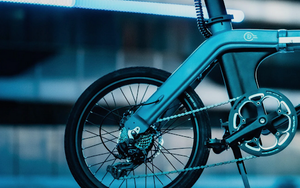Are Electric Scooters Legal in Leicester?
Sep 23, 2024
Electric scooters have gained significant popularity in recent years, especially in urban areas where they provide a convenient and eco-friendly mode of transport. However, the legal status of these scooters can be a complex issue, varying not only across the United Kingdom but also within individual cities such as Leicester. This article explores the current legal landscape surrounding electric scooters in Leicester and considers the implications for users.
Understanding Electric Scooter Laws in the UK
The Basics of Electric Scooter Legislation
In the UK, electric scooters are classified as "powered transporters." This designation means that they do not fall under the same legal category as traditional bicycles. Currently, private electric scooters are illegal to use on public roads, pavements, and in designated cycle lanes unless they comply with specific regulations. The only legal way to ride an electric scooter on public land is through approved rental schemes that are limited to certain trial areas in various cities.
However, you can legally ride an electric scooter on private land with the landowners permission. Off-roading electric scooters are perfect for this, such as the Ducati Scrambler Cross-E or the iENYRID ES60 Dual Motor.
According to UK law, electric scooters must meet certain criteria to be considered roadworthy. They should not exceed a maximum speed of 15.5 mph and must have features like working brakes, lights, and a bell or horn. As of now, no insurance, registration, or licensing is required for rented scooters, though these elements are a subject of ongoing debate for future legislation.
Specific Laws Pertaining to Leicester
In Leicester, as in other UK cities, the local council has launched a rental electric scooter scheme aimed at providing a sustainable transport alternative. This scheme operates under regulations set by the Department for Transport. However, private electric scooters remain illegal on public roads. Riders caught using private scooters in public spaces can face fines and their scooters can be confiscated by law enforcement.
The trial rental scheme in Leicester includes specific zones where scooters can be used, and users are encouraged to check local guidance and signage. While council initiatives have aimed to promote safe and responsible usage, the law surrounding personal ownership remains restrictive.

The Debate Around Electric Scooter Legality
Arguments for Legalisation
Proponents for the legalisation of private electric scooters argue that these vehicles offer numerous benefits, including reducing traffic congestion, lowering carbon emissions, and promoting a healthier lifestyle through active travel. Legalisation could facilitate better regulation, ensuring that users comply with safety standards and reducing the danger associated with unregulated riding.
Supporters also claim that allowing private electric scooters will give users more flexibility in transportation options, particularly in cities like Leicester, where public transport may not be the most convenient. By embracing electric scooters as part of the transportation infrastructure, cities could offer a modern solution to urban transport challenges.
Data shows that switching to e-scooters reduces greenhouse gas emissions by up to 45% and reduces travel time by 47% compared with trips replaced.
Concerns and Criticisms
Despite the potential advantages, several concerns exist surrounding the legality of electric scooters. Critics stress that increased scooter use may contribute to accidents, especially with riders potentially lacking proper training on road safety. There are fears that the presence of scooters could exacerbate pedestrian safety issues, particularly on crowded pavements.
Additionally, the rapid rise of rental schemes has sparked worries regarding the clutter and obstruction of public spaces, as improperly parked scooters can block pedestrian pathways and bike lanes. This has led some advocates to call for stricter regulations not only on scooter usage but also on the rental companies themselves.

The Impact of Electric Scooter Laws on Users
Implications for Scooter Owners
The current regulations have significant implications for private electric scooter owners in Leicester. Those who invest in personal scooters must navigate a legal landscape that prohibits their use in public spaces, leaving them to ride exclusively on private property. This restriction can lead to frustration among users who wish to integrate their scooters into their daily commutes.
This legal ambiguity affects consumer confidence, with many potential buyers deterred by the lack of clarity surrounding their rights and responsibilities as scooter riders. As awareness of electric scooter technology increases, so too does the desire for legislative changes that would accommodate private usage.
Consequences for Rental Services
The restrictions imposed on private electric scooters have led to the proliferation of rental services, which align with legal requirements for public usage. While these services provide a means for users to access scooters legally, they are not without their drawbacks. High demand can lead to scooters being left in unsuitable areas, complicating city management efforts.
Rental companies must strike a balance between convenience and safety, implementing measures to ensure their scooters are responsibly parked and maintained. This has led to discussions on how best to integrate electric scooters into the existing urban transport framework, ensuring a sustainable and beneficial presence in Leicester.

Navigating the Legal Landscape of Electric Scooters
Tips for Staying Informed
For users wishing to stay informed about electric scooter laws in Leicester, it is essential to regularly check official council websites and local news outlets. Updates on legislation, changes to rental schemes, and new policies can significantly affect electric scooter users. Engaging with local forums and community groups can also provide valuable insights into laws and tips for responsible scooter usage.
Attending local council meetings or public consultations about transport can also be beneficial. Engaging in such discussions allows users to voice their experiences and concerns while staying updated on legislative shifts.
Advocacy and Change in Scooter Legislation
Advocacy groups are working towards influencing policy changes that would legalise private electric scooters in Leicester. These groups often conduct campaigns to raise public awareness, gather signatures for petitions, and engage with city officials. They argue for a balanced regulatory approach that addresses safety while encouraging environmentally friendly transportation options.
Active participation in these advocacy efforts can create an avenue for change. Residents who are passionate about electric scooters can voice their opinions, making them part of the evolving conversation surrounding urban mobility solutions.

Future of Electric Scooters in Leicester
Potential Changes in Legislation
As electric scooters become increasingly popular, it's likely that the legal landscape will continue to evolve. Ongoing trials and public interest may prompt Leicester's council and the UK government to consider introducing more inclusive regulations for scooter usage. This could entail establishing specific areas where private scooters may be used, supported by appropriate safety measures.
Future legislation may also consider insurance and registration requirements, ensuring that scooters meet safety standards while protecting riders and pedestrians alike. As discussions progress, staying engaged with developments will be crucial for both users and policymakers.
Predicted Trends in Scooter Usage
In the coming years, it's anticipated that electric scooter usage will increase, driven by a shift towards sustainable transport options. With rising environmental consciousness, more individuals may turn to electric scooters as an alternative to traditional vehicles, especially in urban areas like Leicester. This trend could prompt additional cities to trial rental schemes, leading to broader acceptance of electric scooters.
Moreover, advancements in technology could enhance scooter safety and user experience. As electric scooter designs improve and infrastructure adapts to support them, their role in urban transport is likely to become more prominent, potentially reshaping how we move about our cities.

Conclusion
In conclusion, while current legislation presents challenges for electric scooter users in Leicester, ongoing discussions and advocacy may lead to a more accommodating future. Whether through the introduction of new laws or the expansion of rental schemes, the electric scooter landscape is set for change.
Check out our full range of electric scooters, perfect for use on private land here.






